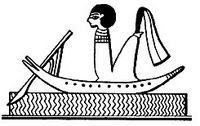Agape is an open-hearted position toward life
"Thomas Moore takes themes that we have all heard about for years and puts them into new and deeper contexts. Evolutionary Christianity is wide ranging and little discussed in church circles but agape has been with us since our earliest Sunday school days. What new is there to learn about this most basic of Christian concepts? It turns out to be quite a lot.Elliott lists some of his group members' own reflections about agape. He concludes, "What we didn’t get to discuss much was how on the last pages of the chapter Moore mentions that this notion of agape is not just for personal or family situations but points us in the direction of global community. "'The point is to create a world community that transcends religious allegiance and nationalism.'(p. 56)." The group continues in the new year with the book's presentation of healing.
'Agape is an alternative to hatred, suspicion, judgement, and paranoia. It is less an emotion and more an orientation towards life. You face the world with an open heart rather than with a suspicious or punitive one . . . But the agape of the Gospels is not just a feeling; it's a stance, a position, an evaluation that generates respect.'(p. 45-46) This seems appropriate for our time. Thomas Moore uses the parable of the prodigal son to exemplify this stance but we were able to come up with powerful stories of our own that even after years still have deep meaning for us."
Labels: Thomas Moore, Writing in the Sand


